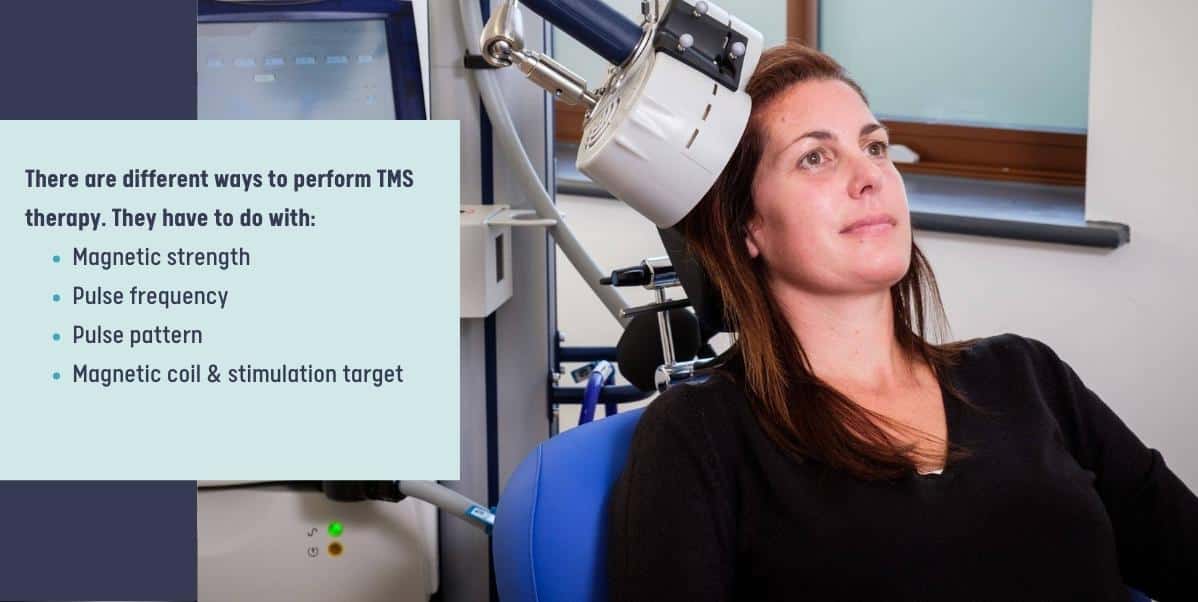
Transcranial Magnetic Stimulation (TMS) is a non-invasive therapy that uses a magnetic coil to modify the electrical activity of your brain. TMS therapy has been successfully used to treat a wide range of mental health problems, since its introduction in 1985.
How Does the Magnet Affect How Your Brain Works?
Electricity and magnetism are two fundamental physics concepts that are used in transcranial magnetic stimulation. TMS depends on the ability of these two principles to cooperate.
The magnetic field is the influence of a magnet in a magnetically active environment, which surrounds a magnet. Although you can’t see it, the area nevertheless exhibits the magnet’s properties at its core. When you place a magnet next to an electrically conducting object, the electrically conducting object interacts with the magnetic field to produce electricity.
Why does it matter? Your brain is electrically active. Your brain and nerves’ neurons use very small quantities of electricity to send messages throughout your body. The electrical activity of your brain can be affected by placing a magnet close to it. TMS specifically targets areas of your brain that are involved in internal decision-making, emotions, feelings of pleasure, etc.
To perform TMS, you need a magnet that can turn on and off. It is possible to accomplish that by using electricity to regulate the magnet’s on/off state. Additionally, you need a magnet that is considerably more powerful than the typical magnet you keep nearby or on your refrigerator.
Different Types of TMS

There are different ways to perform TMS. They have to do with the magnet’s strength and various ways to apply the magnetic field.
Magnetic strength: Like an MRI scanner, the majority of TMS magnets produce magnetic fields that are 1.5T to 2T in strength. The tesla (T) is the measurement unit for magnet strength. However, since the TMS magnet is significantly smaller than an MRI, the magnetic field’s surface area is considerably less.
Pulse frequency: A pulse is produced every time the magnetic field switches on and off. The frequency is measured in pulses per second and the unit of measurement is hertz (Hz). TMS may use high-frequency pulses at 5 Hz to 10 Hz or low-frequency pulses at 1 Hz. Repetitive TMS (rTMS) refers to TMS that utilizes repeated pulses.
Pulse pattern: Different pulse patterns can potentially be used in TMS to treat depression patients. Theta-burst stimulation (TBS) is one illustration of this. A triplet of 5 Hz bursts occurs during TBS, making for a total of 15 pulses per second. These burst patterns accelerate treatment, making it five or six times quicker than conventional approaches.
Magnetic coil and stimulation target: Different brain structures can be targeted by various types of magnetic coil. Compared to rTMS and TBS, deep TMS (dTMS), which uses an H-shaped helmeted coil, targets deeper areas of the brain. According to research, dTMS is useful in treating conditions like obsessive-compulsive disorder (OCD).
When is TMS Done?
TMS may be a suitable treatment option for those suffering from depression who have not responded to traditional treatments. It can be an effective alternative to medication and psychotherapy, particularly in cases of severe or persistent symptoms.
Different nations may have approved TMS to treat different conditions. In the United States, the Food and Drug Administration (FDA) has approved TMS for the treatment of the following four ailments:
- Major depressive disorder (MDD)
- Obsessive Compulsive Disorder (OCD).
- Smoking cessation
- Migraines
Research is being done to investigate if TMS can treat other ailments in addition to the ones that have been approved. These comprise, but are not restricted to:
- Addiction
- Bipolar disorder
- Alzheimer’s disease
- Borderline Personality Disorder (BPD)
- Eating disorders
- Chronic pain
- Fibromyalgia
- Post-traumatic stress disorder (PTSD).
- Complications from stroke
- Parkinson’s disease
- Schizophrenia
- Auditory and tinnitus hallucinations
- Brain damage caused by trauma
Get TMS Therapy for Your Depression at My TMS
If you or your loved one is struggling with major depressive disorder and other treatment approaches have not yielded much, it’s time you try TMS. However, you should first consult board-certified mental health professionals to understand whether TMS is the best path for you.
Our team of psychiatrists at My TMS consists of experts in the field. We apply modern technologies and resources to give you the best care. You have our full support whenever you need assistance with managing your medications, alternative solutions like TMS, or therapy services. Contact us to get started today. We also offer top-quality mental health services at My Psychiatrist.


